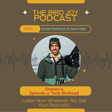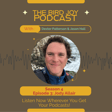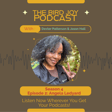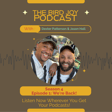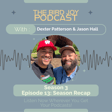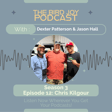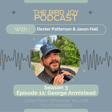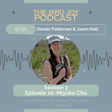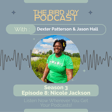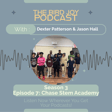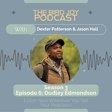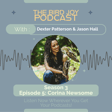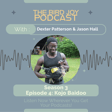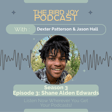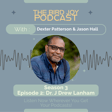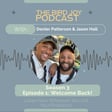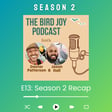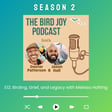
Finding Healing Through Birding with Tammah Watts
Get comfortable. Take a seat. Gather around friends for a warm and meaningful conversation with the famed author, mindful birder, licensed marriage and family therapist, California Audubon board member, and accessible birding advocate Tammah Watts! In this episode we discuss her approaches to birding as it pertains to her own healing and connection with our community, including incredible encounters with Red-shouldered Hawks and Mourning Doves to aid in the healing. We cover some experiences we’ve all had in nature, some with each other. We look into her book, “Keep Looking Up: Your Guide to the Powerful Healing of Birdwatching,” and even explore some pages together. You will be delighted to participate in a prompt read live by Tammah, where we embody a crane looking at still water for some self-reflection. We also talk about some birding adventures with the SoCal Bird Nerd crew (of which Jason is an honorary member), where they look for Cactus Wrens and Say’s Phoebe. We also get some great advice from Tammah on how to approach our birding in ways that help us cope with life in a sometimes very challenging world.
This is a space we gather to fill up each other’s cups with that everlasting Bird Joy! Join us!
Be sure to follow our podcast on Instagram at @thebirdjoypod and subscribe wherever you get your podcasts.

